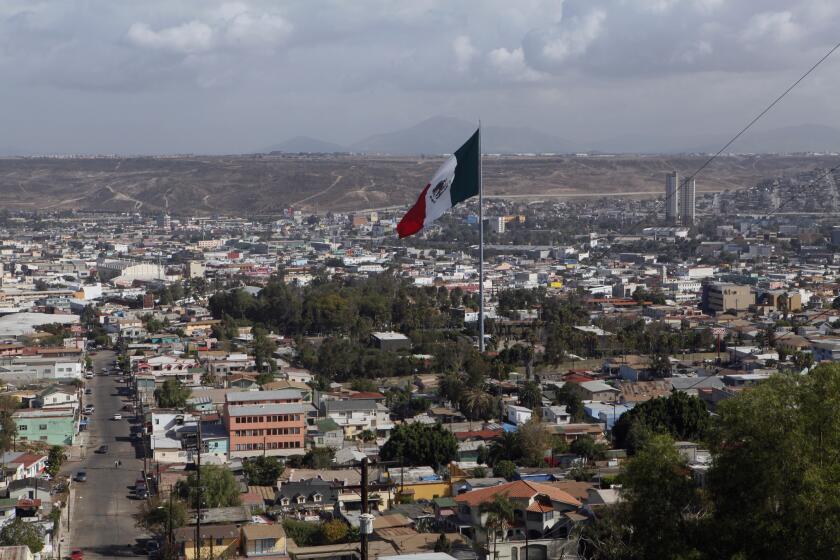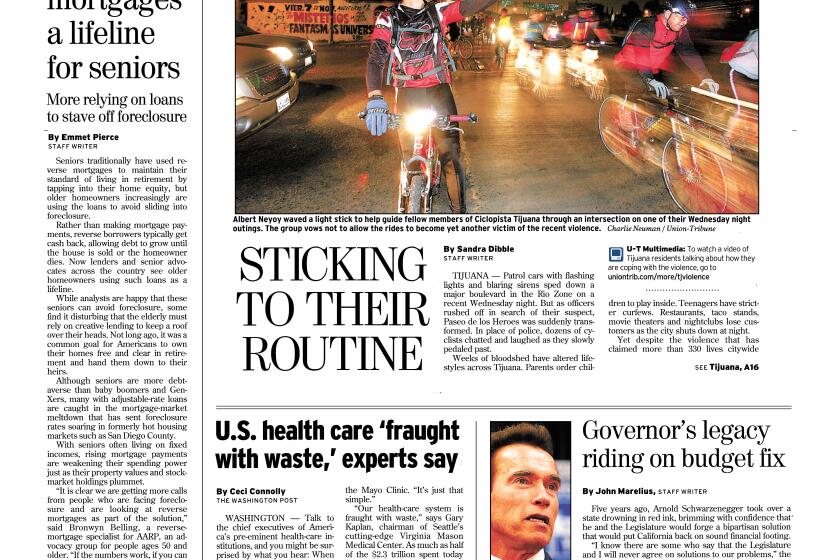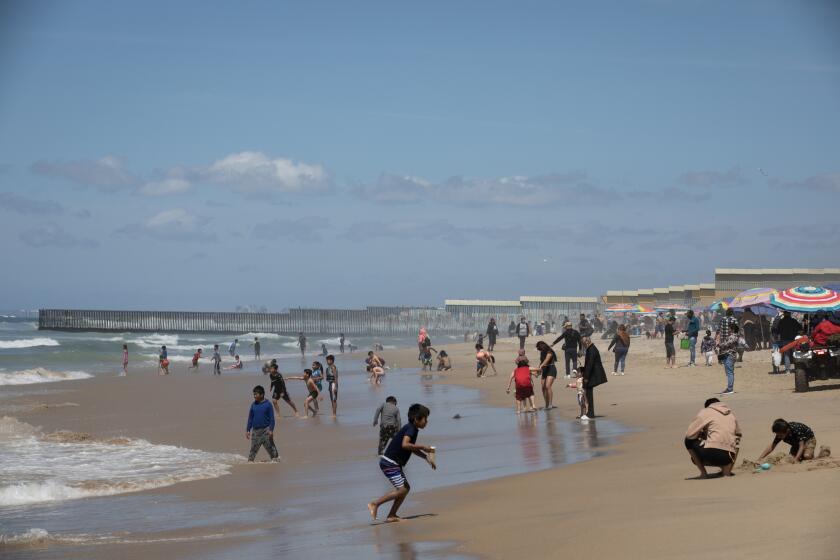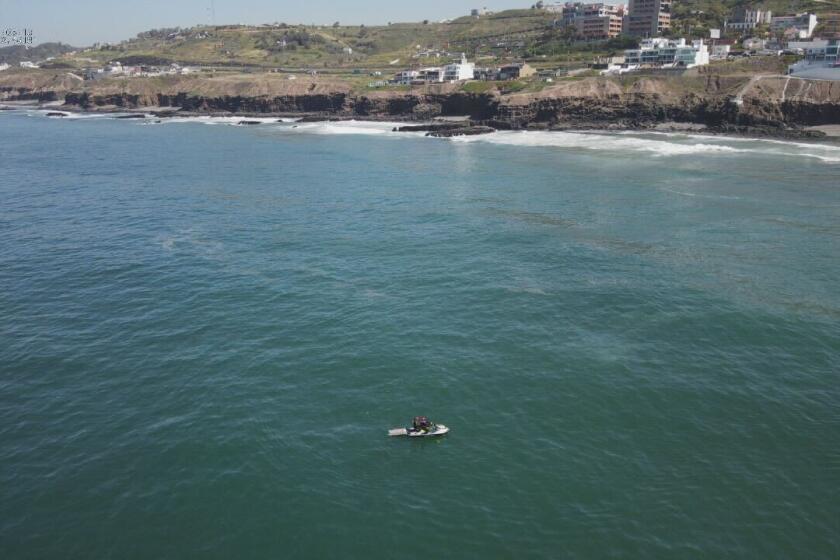U.S., Mexico to sign agreement on Tijuana River
The United States and Mexico are preparing to sign an agreement to address issues of sediment, trash and polluted stormwater that for years have plagued the Tijuana River watershed.
The binding agreement, known as a minute, aims to set up a framework to formally address the issues bilaterally and bring together members of government agencies as well as participants from the nonprofit sector. Under the minute, groups are expected to address three major issues: sediment control, solid waste management and water quality.
The accord has been negotiated through the U.S. International Boundary and Water Commission, or IBWC, and its Mexican counterpart, the Comision International de Limites y Aguas, or CILA.
“For the course of three decades, there has been frustration on both sides of the border,” said Carlos de la Parra, a researcher at the Colegio de la Frontera Norte and the head of the CILA citizens advisory group in Tijuana.
Discussions have been ongoing for close to two years, and a final agreement is expected before the end of the summer. The wording of the agreement is under review by Mexico’s Foreign Ministry, and a final version would have to be approved by the U.S. State Department.
The minute is an amendment to the 1944 water treaty between the United States and Mexico. The last such amendment, Minute 319, was signed in November 2012 and committed the two governments to unprecedented collaboration on the Colorado River during a five-year period.
The Tijuana River watershed spans portions of Baja California and San Diego County, covering 1,735 miles, an area roughly the size of Rhode Island. About two-thirds of its area is in Mexico.
For years, major challenges have involved pollution at the mouth of the river, at the Tijuana River National Estuarine Research Reserve in Imperial Beach. A persistent problem has been discarded tires that are carried down the watershed from Tijuana shantytowns during heavy downpours.
Another issue has been sediment: “There are a lot of these canyons (in Mexico) that drain into the United States,” said Sally Spener, foreign affairs officer for the IBWC. “The soils in the region are highly erodible, and so when you get rain you get erosion, it brings sediment, trash, it affects water quality.”
Roberto Espinosa, CILA’s representative in Tijuana, said that the agreement “will give us the necessary instruments to understand our shared watershed more clearly.”
Espinosa said that greater understanding will lead to concrete actions. “The binational watershed deserves this, and the communities of San Diego and Tijuana do as well.”
sandra.dibble@utsandiego.com (619) 293-1716 Twitter: @sandradibble
Get Essential San Diego, weekday mornings
Get top headlines from the Union-Tribune in your inbox weekday mornings, including top news, local, sports, business, entertainment and opinion.
You may occasionally receive promotional content from the San Diego Union-Tribune.










